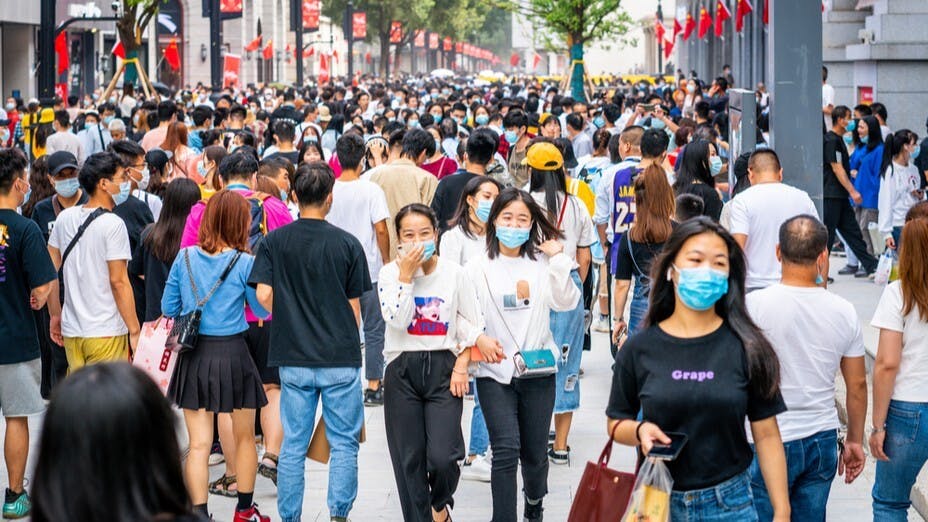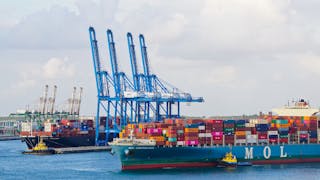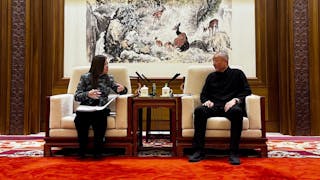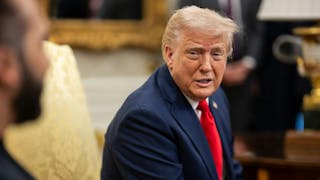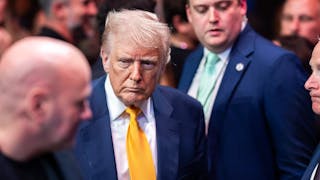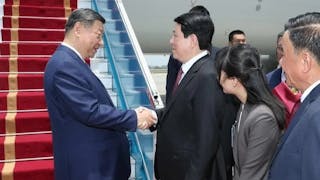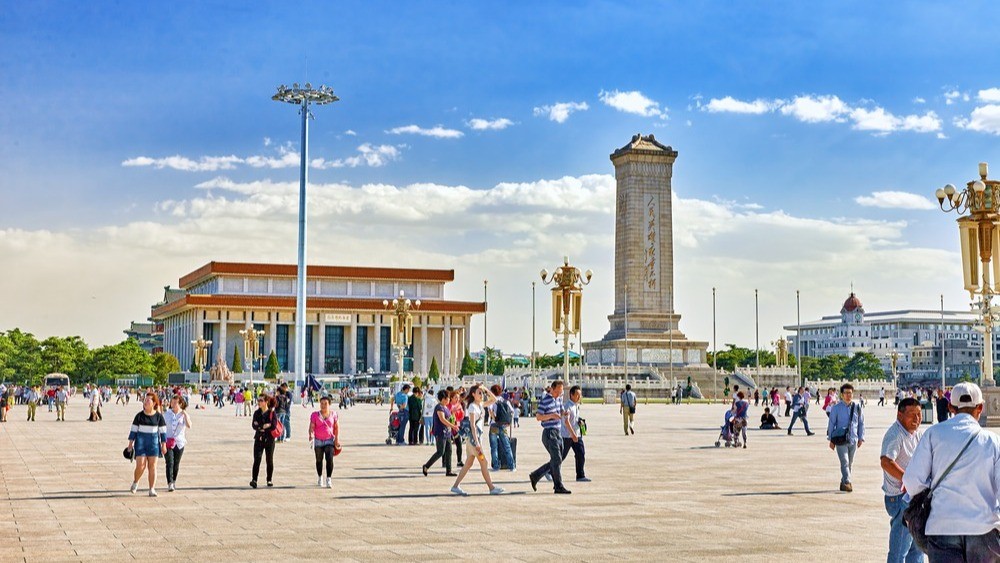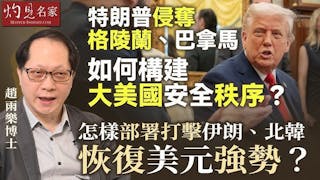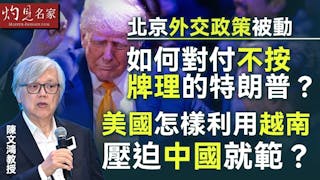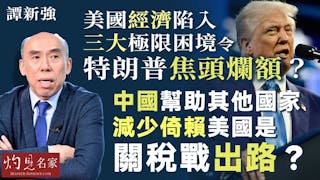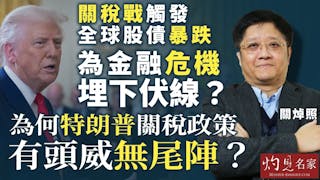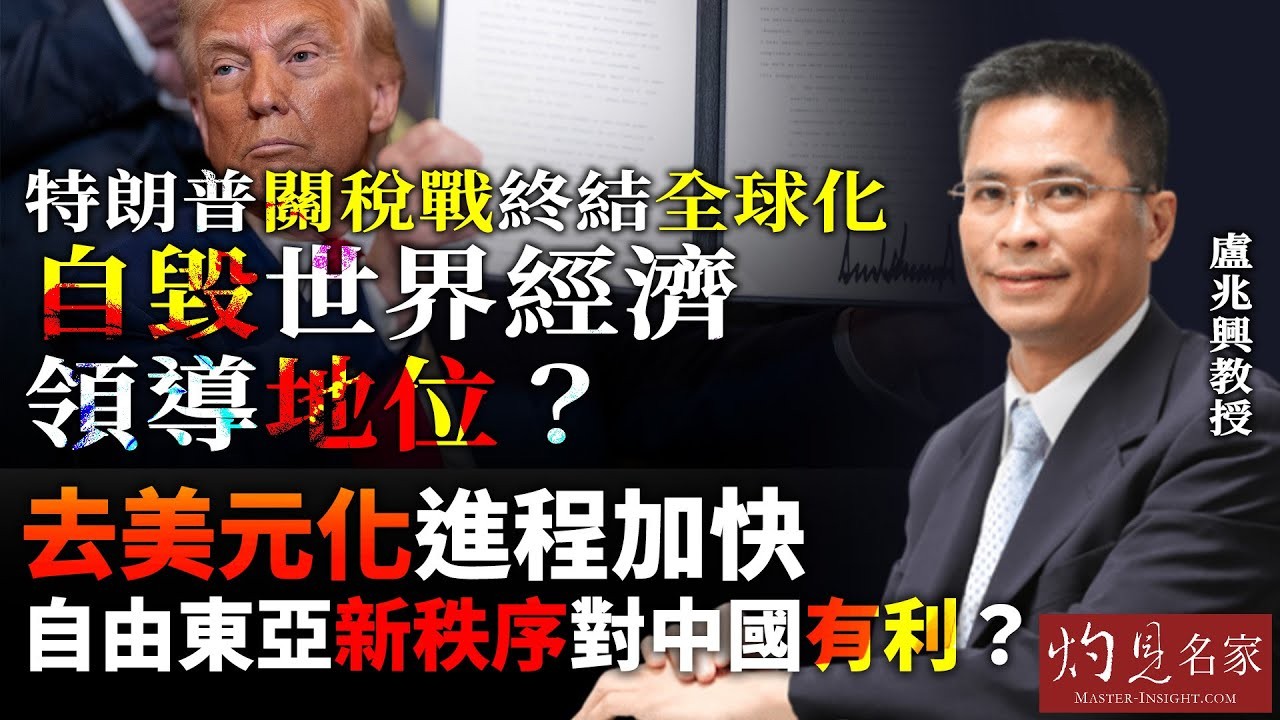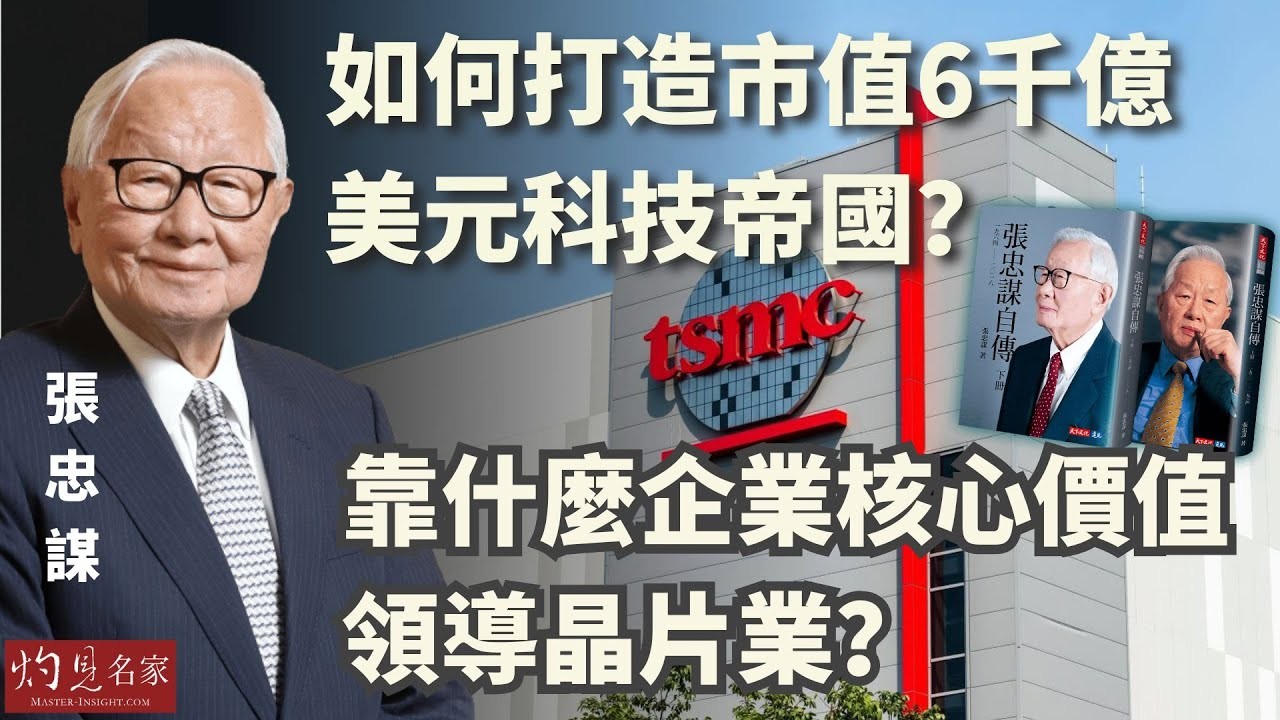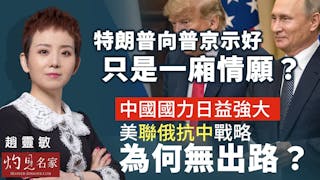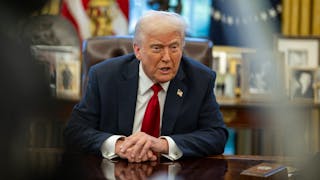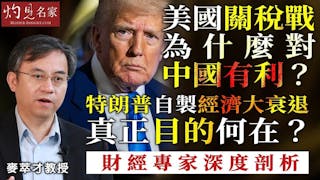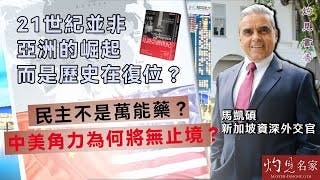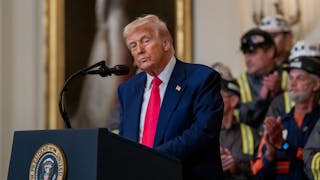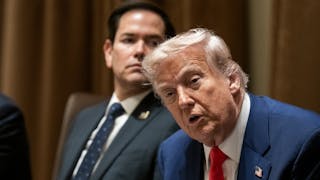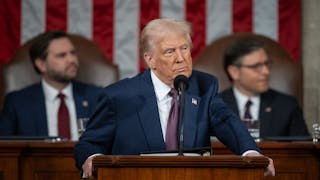2023年兔年伊始,我們會見證新冠病毒及其複雜變種的終結;儘管如此,從2020年初到2023年1月的過去3年中,國際和大中華地區都經歷了應對新冠病毒及其變種的痛苦和激烈的政治鬥爭。本文旨在探討新冠病毒對國際和國內的政治影響,尤其是大中華地區深受疫情影響的中國大陸、香港、澳門和台灣。
世衛協調效果未如理想
在全球管治層面,世界衛生組織(WHO)似乎並沒有起到非常有效的各國協調者和健康保護者的作用,而是將任務交給了各成員國,尤其是在疫苗生產和分發方面。2020年初新冠病毒在武漢市爆發時,世衛組織確實派遣了代表團前往中國,但其調查結果未能讓成員國平靜下來。世衛也沒有真正將新冠病毒及其早期毒性變種視為生物恐怖主義襲擊。可以說,新冠病毒及其強大的變種可以被視為生物恐怖主義,使世界上許多國家陷入巨大混亂。但是,世衛無意重新考慮其對傳染病的定義,將抗擊新冠病毒的任務留給了各個成員國。
儘管許多其他國際組織通過合作生產疫苗和分享公共衛生經驗來合作對抗新冠病毒及其變種,但總體而言,過去3年並沒有表明世衛在全球抗擊新冠病毒方面發揮很大的作用。世衛也沒有及時宣布新冠病毒的最新變種減弱,以至全球大流行可以被視為過去。也許是時候讓世衛重新審視其對傳染病的狹隘定義,並反思新冠病毒的教訓,以了解其未來的方向及與成員國的關係。
疫情消退 政治角力未完
在國際政治層面,新冠病毒及其爆發引發了激烈的國際政治對抗、爭吵和鬥爭,尤其是在美中關係的框架中。令人難以置信的是,美國前總統特朗普將新冠病毒稱為「中國病毒」──這一極具爭議的指控引發了美中關係的惡化。新冠病毒的起源仍然充滿爭議和神秘感:有科學家指出大自然是源頭,也有科學家指出其他原因,從武漢市場到病毒實驗室疑似洩漏;從武漢軍運會一些被感染的美軍軍人到美國實驗室另一次疑似洩漏,新冠病毒起源的整個辯論都充斥着中美關係及其鬥爭的氛圍。
國際上,關於新冠病毒及其變種的政治角力並沒有停止,即使疫情開始消退,中國於2023年1月開放邊境,日本和韓國卻對中國大陸游客和來訪者實施入境限制。儘管韓國和日本認為他們必須保障其國內衛生安全,但其根本原因可能是對中國在「動態清零」政策的最後階段如何處理新冠病毒及其變種的不信任──這對於世界上某些國家,仍然感神秘莫測。日本和韓國對中國大陸游客實施入境限制的方式存在爭議。隨着愈來愈多中國人的免疫系統產生抵禦新冠病毒及其變種的抗體,希望日韓兩國都能放寬中國人入境的限制。
大陸政策逆轉 產生意外後果
在國內層面,中國自2000年代初崛起以來,受新冠病毒衝擊的影響最大。武漢疫情爆發對許多市民來說是一次痛苦的經歷,導致國家對人民及對香港、澳門和台灣同胞實行嚴格的隔離政策直至2023年初。經歷過2020年初武漢一役之後,當局採取一種高度集中和動員的策略,對內地民眾的流動實施非常嚴格的限制。2021年,中國似乎嚴格控制了新冠病毒的傳播,但上海經歷了2022年中的疫情,最重要的是2022年12月零星的公民抗議,表明需要更靈活的政策來應對新冠病毒及其變種。中央衛生官員似乎將責任歸咎於省級和地方官員在執行「動態清零」政策時過於嚴格。
但從更客觀的角度來看,考慮到城市和農村部分老年人的疫苗接種率可能並不高,再加上2023年1月中央衛生部門的突然政策變化,頗多中國公民成為新冠病毒及其變種的最後一波攻擊的受害者。因此,由於2020年初武漢市的慘痛經歷,中國對新冠病毒及其變種採取了有效的集中和動員策略,但這種過度集中的策略在2023年初突然發生了急劇逆轉。
事後從好的方面看,更好的策略是,如果從2022年秋季便逐步地放寬「動態清零」政策,允許更多公民自然產生免疫力,而不是過度保護他們。2023年初的大刀闊斧的政策逆轉,也引發了很多城市很多老百姓搶購藥物和退燒藥。這一現象表明,長期存在的過度集中政策突然轉變為快速放鬆的問題,沒有充分警告當地製藥業,即在政策逆轉的早期階段,退燒藥和止咳藥本可以更充分地製備和生產。也許中國在地理上仍然如此之大,以至於中央的任何政策逆轉,都可能對省級和地方層面,產生衛生當局未預料到的意外後果。
各地政策風格迥異 台港更為自由開放
香港是另一個深受新冠病毒及其變種影響的地方。2022年3月和4月突然爆發的新冠疫情及其變種流行,導致許多老年人死亡,暴露了護老院的弱點、政府部門之間缺乏協調,以及衛生部門未能及時預測和應對突如其來的危機。然而,香港應對新冠病毒及其變種的方式,遠比中國大陸和澳門更加自由,使香港逐步對外開放,經濟復甦更快。
澳門沿襲了中國大陸的中央集權政策風格。在2020年新冠病毒傳播初期,澳門政府採取果斷措施關閉賭場數日,以保護公眾健康,此舉受到市民的稱讚。然而,針對新冠病毒及其變種的過度集中及嚴格的政策,讓澳門付出了沉重的代價;許多市民被動員起來一次又一次地進行健康檢查。幸運的是,大多數澳門人都有聽話的政治文化,服從政府的指示而沒有怨言。儘管如此,2023年初澳門的突然開放,還是招來了部分市民的抱怨和難以適應。對澳門進行更有活力的管治需要其政治領導人更加自主,並採取至少與中央政府略有不同的衛生政策。事實上,澳門對內地工人和遊客的依賴,意味着其管治縛手縛腳。儘管如此,澳門當局仍應重新審視過去3年過於僵硬的衛生政策,並汲取慘痛教訓,了解未來將如何應對另一場公共衛生危機。
台灣也不比香港和澳門好。當新冠病毒及其變種襲擊台灣時,台灣當局有點措手不及。但是,其衛生當局的反應總體上還是相當快的,新冠病毒及其變種已得到控制,而寶島的大門也逐漸向外界開放,沒有過分的恐懼。
大中華區的案例及其應對新冠病毒及其變種的不同反應,顯示出不同的政策風格。台灣和香港採取更加自由開放的開放方式,而中國大陸和澳門採取更加集中和僵化但突然逆轉的政策方式。考慮到2020年初武漢的慘痛經歷,中國大陸採取的做法可說是可以理解的。但是,澳門本可以做得更好,可以學習香港採取的更開放的做法,而作為一個島嶼的台灣自然採取了更自由應對新冠病毒及其變種的方法。
隨着2023年兔年的到來,大中華四地的經濟、人文交流、對外貿易和產業回暖有望快速復甦。如果是這樣,2023年將在社會上更加令人興奮,經濟上更加活躍,國際互動更加活躍。
經濟復甦有望 告別政治操作
無論如何,我們可以告別針對新冠病毒及其變種的政治操作。新冠病毒已經奪去了世界上許多公民的生命,包括大中華地區的許多居民。新冠病毒的起源仍然存在爭議,說明了在中國在經濟和軍事上崛起,美國將「中國威脅」視為「真實」威脅之際的美中競爭。世衛的表現仍然存在爭議,該組織可能需要從其處理新冠病毒及其變體的方式中汲取慘痛教訓,以及思考未來是否需要加強其協調作用。畢竟,世界各國是面對新冠病毒及其變種生物恐怖襲擊的最後戰士,尤其是缺乏疫苗和必要能力應對傳染病的較弱發展中國家。
在大中華區,不同類型的政府採取了不同的政策風格,從台灣和香港採取的更自由的方式到中國大陸和澳門採取的更集權、動員民眾但突然逆轉的方式。儘管沒有任何一種方法可以完全有效應對新冠病毒及其變種,但大中華地區各政府及其衛生當局反思和審查其政策應對措施和教訓的時機或許已經成熟,這樣,即使再有哪種傳染病肆虐,未來都將以更有效的方式對付生物恐怖主義。
Farewell to the Politics of Covid-19: Implications for Global and Domestic Governance
Embracing the Year of the Rabbit in 2023, we are witnessing the end of Covid-19 and its complex variants; nevertheless, the past three years from early 2020 to January 2023 were characterized by the painful experiences and bitter political struggles, both international and domestic, of how to deal with Covid-19 and its variants. This article aims at examining Covid-19 and its international and political implications, especially in Greater China where mainland China, Hong Kong, Macau and Taiwan have been deeply affected.
At the global governance level, the World Health Organization (WHO) did not seem to play a very effective coordinator and a health protector of the states in the world, leaving the tasks to individual states, especially in the area of vaccination production and distribution. The WHO did dispatch its delegation to China, where Covid-19 erupted in early 2020 in the city of Wuhan, but its findings failed to calm the member states. Nor did it really regard Covid-19 and its early virulent variants as bio-terrorist attacks. Arguably, Covid-19 and its strong variants could be regarded as bioterrorism plunging many states in the world into great chaos. However, there was no intention on the part of the WHO to reconsider its definition of infectious diseases, leaving the task of combating Covid-19 to individual member states.
Although many other international organizations collaborated in their combat against Covid-19 and its variants through collaboration in vaccine production and sharing of public health experiences, overall the past three years did not point to a strong WHO in the global fight against Covid-19. Nor was it swift in announcing that the recent variants of Covid-19 were so weak that the global “pandemic” could have been regarded as a thing of the past. Perhaps it is time for the WHO to revisit its narrow definition of infectious diseases and ponder the lessons of Covid-19 for its future directions and relations with member states.
At the level of international politics, Covid-19 and its outbreak led to fierce international political rivalries, bickering and struggles, especially in the context of US-China relations. It was unbelievable that the former US President Donald Trump referred to Covid-19 as a “China virus” – a highly controversial accusation sparking the deterioration of US-China relations. The origins of Covid-19 remained highly contentious and mysterious; some scientists pointed to the nature as its origin, while some pointed to other reasons, ranging from the Wuhan market to a suspected leakage from a laboratory, and from some infected US soldiers in a Wuhan military sports competition to another suspected leakage from an American laboratory. The entire debate over the origins of Covid-19 was tainted with US-China relations and their struggles.
The international politics of Covid-19 and its variants have not stopped even when they began to fade away and when China opened up its border in January 2023, when Japan and South Korea imposed entry restrictions on the mainland Chinese tourists and visitors. Although South Korea and Japan were that they had to protect their internal health security, the underlying reason was perhaps a kind of distrust toward how China handled Covid-19 and its variants in the final stage of its “dynamic zero Covid policy,” which to some states in the world remained mysterious and secretive. The ways in which South Korea and Japan have imposed entry restrictions onto the mainland Chinese visitors remain controversial. It is hoped that both countries will relax their entry restrictions as more mainland Chinese in China are developing their immunity system against Covid-19 and its variants.
At the domestic level, China since its rise in the early 2000s has been most affected by the onslaught of Covid-19. The Wuhan outbreak was a painful experiences to many residents in the city, leading to the country’s tight quarantine policy imposed onto its residents and comrades from Hong Kong, Macau and Taiwan until early 2023. What is striking in the mainland Chinese experience was that it adopted a highly centralized and mobilizational strategy in imposing very tight restrictions on the movement of its citizens after the Wuhan experiences in early 2020. In 2021, it appeared that China kept a tight lid on the spread of Covid-19, but the Shanghai experiences in mid-2022 and most importantly the sporadic citizen protests in December 2022 pointed to a need for a more flexible policy dealing with Covid-19 and its variants. The central health officials appeared to put the blame onto the provincial and local officials for being too strict in their policy implementation of the “dynamic zero Covid policy.”
However, from a more objective standpoint, given the fact that the vaccination rate of some elderly people in urban cities and rural areas was perhaps not high, and given the sudden policy change from the central health authorities in January 2023, quite a number of Chinese citizens became the victims of the last wave of attack from Covid-19 and its variants. As such, due to the painful experiences in Wuhan city in early 2020, China adopted an effective centralized and mobilizational strategy against Covid-19 and its variants, but this overcentralized strategy was suddenly and drastically reversed in early 2023. A better strategy was, from the benefit if hindsight, a more gradual loosening up of its “dynamic zero Covid policy” in the fall of 2022, allowing more citizens to develop their natural immunity rather than overprotecting them. The drastic policy reversal in early 2023 also led to a scramble for medicines and anti-fever medicines on the part of many ordinary Chinese in many cities. This phenomenon demonstrated the problem of an endured overcentralized policy which was suddenly changed to rapid relaxation without sufficient warning to the local pharmaceutical industries that anti-fever and anti-cough medicines could have been prepared and produced more adequately during the early phase of policy reversal. Perhaps China remains so large geographically that any policy reversal from the centre could have unintended consequences on provincial and local levels that were unanticipated by health authorities.
Hong Kong was another place deeply affected by Covid-19 and its variants. The sudden outbreak of Covid-19 and its virulent types in March and April 2022 led to the death of many elderly people, exposing the weaknesses of the elderly care homes, the lack of coordination among governmental departments, and the failure of the health authorities to anticipate and address sudden crises. Yet, Hong Kong’s approach to dealing with Covid-19 and its variants was far more liberalized than mainland China and Macau, leading to its gradual opening with the outside world and a faster recovery of the economy.
Macau followed the centralized policy style of mainland China. At the early beginning of Covid-19 in 2020, the Macau government made a decisive step to close the casinos for some days in order to protect public health – a measure praised by the citizens. However, an overcentralized and a rigid policy against Covid-19 and its variants cost Macau dearly; many citizens were mobilized to have their health checks again and again. Luckily, most Macau people have an obedient political culture, obeying the directives from the government without grievances. Still, the sudden opening up of Macau in early 2023 led to the complaints and difficult adaptation of some citizens. A more dynamic governance of Macau requires its political leaders to be more autonomous and to adopt a health policy at least slightly different from the central government. Indeed, Macau’s dependence on mainland workers and tourists means that its governance has its hands tied. Still, the Macau authorities should revisit its over-rigid health policy during the past three years and learn a bitter lesson on how it would deal with another public health crisis in the future.
Taiwan was no better than Hong Kong and Macau. Taiwan’s authorities were caught by surprise when Covid-19 and its variants attacked the island. However, the responses of its health authorities were in general quite fast, and Covid-19 and its variants were under control while the door of the island was gradually opened to the outside world without excessive fear.
The case of Greater China and its varying responses to Covid-19 and its variants shows different policy styles. Taiwan and Hong Kong adopted a more liberalized and open approach to opening their doors, while mainland China and Macau took a more centralized and rigid but suddenly reversed policy approach. The approach adopted by mainland China was arguably understandable, given the very painful experiences in Wuhan in early 2020. However, Macau could have done better and learnt from a more open approach adopted by Hong Kong, while Taiwan as an island naturally adopted a more liberal approach to coping with Covid-19 and its variants.
With the onset of the Year of Rabbit in 2023, the four places in Greater China are expected to envisage a rapid recovery of their economy, human interactions, external trade and industrial rebound. If so, 2023 is going to be more socially exciting, economically lively and internationally interactive.
In conclusion, we can bid farewell to the politics of Covid-19 and its variants, which have cost the lives of many citizens in the world, including sadly many residents in the Greater China region. The origins of Covid-19 remained controversial and illustrated the US-China rivalries at a time when China was rising economically and militarily while the US perceived the “China threat” as a “real” one. The WHO performance remained controversial and it perhaps needs to learn a bitter lesson from how it handled Covid-19 and its variants, and whether its coordination role would need to be enhanced in the future. After all, states in the world were the final fighters facing the bioterrorist attacks of Covid-19 and its variants, especially the weaker developing states that lacked vaccines and the necessary capacity to deal with infectious diseases. In Greater China, different types of regimes adopted varying policy styles, ranging from the more liberal approach adopted by Taiwan and Hong Kong to the more centralized, mobilized and yet suddenly reversed style in both mainland China and Macau. Although no single approach to dealing with Covid-19 and its variants was effective, it is perhaps the ripe time for the governments and their health authorities in the Greater China region to reflect and review their policy responses and lessons so that any other infectious disease tantamount to bioterrorism would be tackled in a far more effective manner in the future.
原刊於澳門新聞通訊社(MNA)網站,本社獲作者授權轉載。網址:https://www.macaubusiness.com/opinion-farewell-to-the-politics-of-covid-19-implications-for-global-and-domestic-governance%EF%BB%BF/



